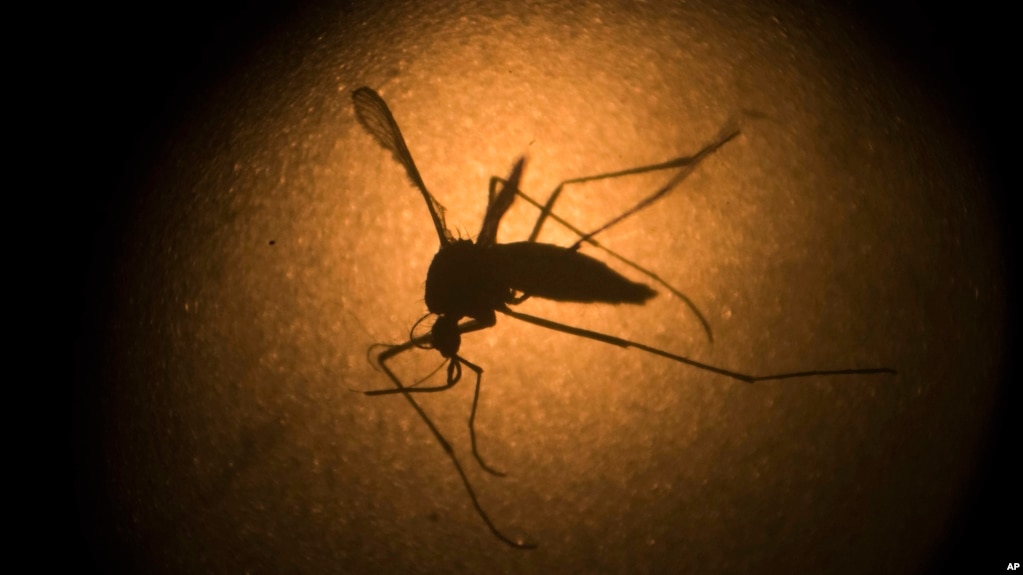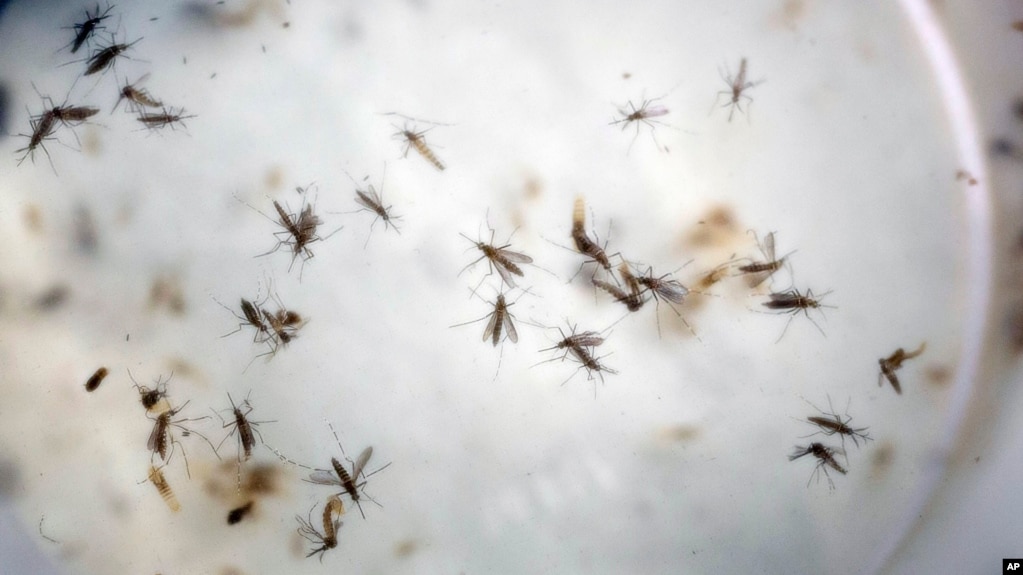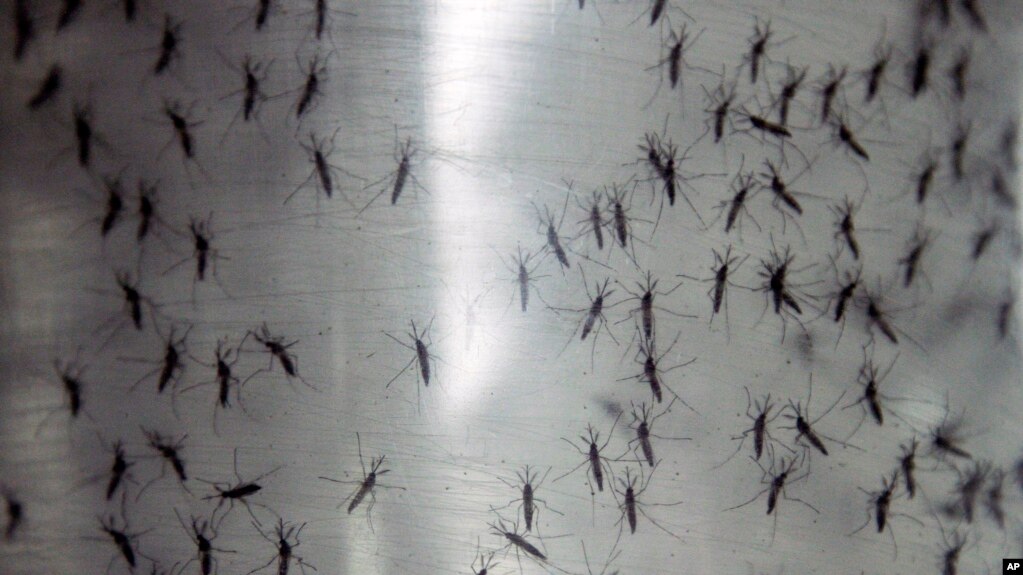Navigation
Install the app
How to install the app on iOS
Follow along with the video below to see how to install our site as a web app on your home screen.

Note: This feature currently requires accessing the site using the built-in Safari browser.
More options
You are using an out of date browser. It may not display this or other websites correctly.
You should upgrade or use an alternative browser.
You should upgrade or use an alternative browser.
"""Mosquito"""
- Thread starter 1stRambo
- Start date
Penelope
Diamond Member
- Jul 15, 2014
- 60,260
- 15,767
- 2,210
From what I heard no they didn't , and yes people are getting infected with it. A woman in NY. Of course the black plaque or a TB epidemic could happen and the GOP wouldn't give Obama money. Florida and Texas, biggest socialists states there are.
Smart mosquito trap...

New mosquito trap smart enough to keep just the bad bugs
Feb 16, 2017 | WASHINGTON — A smart trap for mosquitoes? A new high-tech version is promising to catch the bloodsuckers while letting friendlier insects escape — and even record the exact weather conditions when different species emerge to bite.

New mosquito trap smart enough to keep just the bad bugs
Feb 16, 2017 | WASHINGTON — A smart trap for mosquitoes? A new high-tech version is promising to catch the bloodsuckers while letting friendlier insects escape — and even record the exact weather conditions when different species emerge to bite.
Whether it really could improve public health is still to be determined. But when the robotic traps were pilot-tested around Houston last summer, they accurately captured particular mosquito species — those capable of spreading the Zika virus and certain other diseases — that health officials wanted to track, researchers reported Thursday. The traps act like "a field biologist in real time that's making choices about the insects it wants to capture," said Microsoft lead researcher Ethan Jackson, who displayed a prototype trap at a meeting of the American Association for the Advancement of Science in Boston. The traps are part of Microsoft's broader Project Premonition, aimed at learning how to spot early signs of outbreaks. "It catches people's imagination," said University of Florida medical entomology professor Jonathan Day, who isn't involved with the project. "But whether it is actually a trap that will functionally improve surveillance, I think that remains to be seen."
Trapping is a key part of mosquito surveillance and control, important so health officials know where to spray or take other measures to fight mosquito-borne diseases. Trapping hasn't changed much in decades: Typically net traps are outfitted with mosquito-attracting bait and a fan, and suck in whatever insect gets close enough. Entomologists later sort the bugs for the ones they want. Jackson's trap consists of 64 "smart cells," compartments outfitted with an infrared light beam. When an insect crosses the beam, its shadow changes the light intensity in a way that forms almost a fingerprint for that species, Jackson said. Program the trap for the desired species — such as the Aedes aegypti mosquito that is the main Zika threat — and when one flies into a cell, its door snaps closed.
In pilot testing in Harris County, Texas, last July and August, the trap was more than 90 percent accurate in identifying the insect buzzing through the door, Jackson said. Harris County already is well known in public health for strong mosquito surveillance, and had been keeping a sharp eye out for Zika — fortunately finding none. But mosquito control director Mustapha Debboun called the high-tech trap promising, and is looking forward to larger scale testing this summer. "If we are trying to collect the Zika virus mosquito, you can teach this trap to collect just that mosquito," he said. When each mosquito is captured, sensors record the time, temperature, humidity and other factors, to show what environmental conditions have different species buzzing. That's information officials might use to schedule pesticide spraying.
MORE
African warming and drought threatens with more Zika, Dengue carrying mosquitoes...

As Africa Warms, Mosquito Carrying Zika, Dengue More Likely to Thrive
September 21, 2017 — From deadly droughts and destroyed crops to shrinking water sources, communities across sub-Saharan Africa are struggling to withstand the onslaught of global record-breaking temperatures.
See also:
Kenya Health Officials Issue Alert Over Dengue Fever Outbreak
May 08, 2017 — An alert has been issued in Mombasa County, Kenya, in response to an outbreak of dengue fever, a potentially fatal mosquito-borne disease.
Related:
Study: Prior Dengue Infection May Make Zika Worse
March 30, 2017 - Zika, like dengue fever and West Nile virus, is in a family of mosquito-borne viruses called flaviviruses. A new study suggests that Zika can be much worse for people previously infected with another flavivirus. In pregnant women, it may put their babies at higher risk for serious birth defects, including microcephaly, a condition in which infants are born with abnormally small heads.

As Africa Warms, Mosquito Carrying Zika, Dengue More Likely to Thrive
September 21, 2017 — From deadly droughts and destroyed crops to shrinking water sources, communities across sub-Saharan Africa are struggling to withstand the onslaught of global record-breaking temperatures.
But the dangers do not end there. Rising heat poses another threat, one that is far less known and studied but could spark disease epidemics across the continent, scientists say. Mosquitoes are the menace, and the risk goes beyond malaria. The Aedes aegypti mosquito, which spreads debilitating and potentially deadly viruses, from Zika and dengue to chikungunya, thrives in warmer climates than its malaria-carrying cousin, known as Anopheles, say researchers at Stanford University.

An Aedes aegypti mosquito known to carry the Zika virus, is photographed through a microscope at the Fiocruz Institute in Brazil.
In sub-Saharan Africa, this means malaria rates could rise in cooler areas as they heat up, but fall in hotter places that now battle the disease. In those areas, malaria, one of the continent’s biggest killers, may be rivaled by other vector-borne diseases as major health crises. “As temperatures go past 25 degrees Celsius (77 degrees Fahrenheit), you move away from the peak transmission window for malaria, and towards that of diseases such as dengue,” said Erin Mordecai, an assistant professor at Stanford. “We have this intriguing prospect of the threat of malaria declining in Africa, while Zika, dengue and chikungunya become more of a danger,” she said. Besides a warming planet, scientists fear growing urbanization across Africa could also fuel the transmission of diseases carried by the Aedes aegypti mosquito, which flourishes in cities and slums, the opposite of the country-loving Anopheles.
Half of Africans are expected to live in cities by 2030, up from 36 percent in 2010, according to World Bank data. A soaring number may become prey to vector-borne viruses like dengue, which have struck Africa at a record pace in recent years, fuelled by urbanization, population growth, poor sanitation and global warming, the World Health Organization (WHO) says. “We see poorly planned development in Africa, not just with megacities but smaller settlements ... which often lack proper water and sanitation,” said Marianne Comparet, director of the International Society for Neglected Tropical Diseases. “Climate change, disease and the interaction between man and habitat — it is a crisis going under the radar ... a time bomb for public health problems,” she added.
Neglected diseases
See also:
Kenya Health Officials Issue Alert Over Dengue Fever Outbreak
May 08, 2017 — An alert has been issued in Mombasa County, Kenya, in response to an outbreak of dengue fever, a potentially fatal mosquito-borne disease.
More than 100 people have been infected in Kenya's coastal city of Mombasa, according to government health officials in the county by the same name. In recent statements, authorities say dengue has spread to different parts of the county, with cases confirmed in major hospitals. The county director of medical services, Dr. Khadija Shikely, says that according to past statistics, dengue has been more prevalent in Mombasa compared with the rest of Africa.
Shikely says that children who go to school and people attending college are most affected by dengue fever. Officials and institutions of learning are working together to clear the mosquitoes' breeding sites. In addition, posters have been released and information has been disseminated via social media to inform people of various preventive measures. According to the World Health Organization, dengue is transmitted by the female mosquito of Aedes aegypti, the same species that transmits yellow fever and the Zika infection. The dengue infection causes a flu-like illness and occasionally develops into a potentially lethal complication called severe dengue, or dengue hemorrhagic fever.

Aedes aegypti mosquitoes float in a mosquito cage at a laboratory in Cucuta, Colombia
The disease is more prevalent in areas that are crowded and unhygienic. Recent rains in the region are said to have created breeding grounds for the insects. Health authorities say dengue was first reported in Mombasa in 2013, with 197 suspected cases. Thirty-eight cases were positive. They also say 589 dengue cases were reported last year. Shikely outlined some efforts taken to control the spread of the disease. She says that for the past two months, even before the start of the rainy season, prevention and control efforts have included chlorination and spraying, and those steps have been repeated because of rains. She says community health workers are also engaged in health promotions.
County health officials have also outlined other prevention efforts, such as encouraging people to use mosquito repellents and sleep under mosquito nets. Mombasa is one of Kenya's top tourist destinations. The thousands of tourists who visit each year contribute largely to the country's economy. Tourism in Kenya is the second-largest source of foreign exchange revenue.
Kenya Health Officials Issue Alert Over Dengue Fever Outbreak
Related:
Study: Prior Dengue Infection May Make Zika Worse
March 30, 2017 - Zika, like dengue fever and West Nile virus, is in a family of mosquito-borne viruses called flaviviruses. A new study suggests that Zika can be much worse for people previously infected with another flavivirus. In pregnant women, it may put their babies at higher risk for serious birth defects, including microcephaly, a condition in which infants are born with abnormally small heads.
The study highlights the potentially deadly effects of a phenomenon called antibody dependent enhancement, or ADE. In the study of mice, researchers at the Icahn School of Medicine at Mount Sinai in New York gave the rodents human antibodies to dengue virus from 141 infected individuals. Another group of animals received antibodies from 146 individuals with West Nile virus. The mice were then exposed to Zika virus. Only 21 percent of mice with the antibodies from dengue patients survived being infected with Zika. Similar results were reported in mice that received antibodies from West Nile patients. Those results were compared to mice that received human antibodies that were not in the family of flaviviruses that includes Zika, dengue and West Nile. All of those animals lived. Another group of mice with no human antibodies also were able to fight off the illness when they were infected with Zika.
Virologist Jean Lim, a co-author of the study published in the magazine Science, said "Our studies may help to explain the severe Zika manifestations that we observed in the recent Zika-infected areas such as South America, where dengue virus is endemic." The study also found that injecting the mice with high doses of dengue survivor antibodies made Zika less severe. It was the mice that were given smaller doses of antibodies that became sicker and died of the mosquito-borne illness. Lim said she thinks that is because more potent flavivirus antibodies are protective against Zika. She believes weaker flavivirus antibodies interact with Zika, helping to infect vulnerable cells.

Containers hold genetically modified mosquitoes
Fewer antibodies seem to act in the same way that an original mild case of dengue can make a second infection much worse. Zika virus is not confined to the Americas. It originated in Africa, but has spread to India and parts of Asia. More than one-third of the world's population lives in areas where dengue in endemic. As Zika virus spreads, so does the fear of more serious infections.
Lim told VOA it is possible that ADE — antibody dependent enhancement — could be happening in humans. "I think in a subset of humans, yes, " she said. "Does it explain all the cases of microcephaly? I really can't answer that." Lim is looking to explore the possible connection between ADE and severe birth defects. There are already vaccines against dengue, and Lim says one possibility to prevent Zika's serious complications would be to develop a dengue vaccine that also protects against Zika. Vaccines against Zika virus are now in clinical trials.
https://www.voanews.com/a/prior-dengue-infection-may-make-zika-worse-study-shows/3789695.html
Similar threads
- Replies
- 17
- Views
- 386
- Replies
- 36
- Views
- 364
- Replies
- 9
- Views
- 216
- Replies
- 234
- Views
- 3K
Latest Discussions
- Replies
- 218
- Views
- 1K
Forum List
-
-
-
-
-
Political Satire 8029
-
-
-
-
-
-
-
-
-
-
-
-
-
-
-
-
-
-
-
ObamaCare 781
-
-
-
-
-
-
-
-
-
-
-
Member Usernotes 468
-
-
-
-
-
-
-
-
-
-
